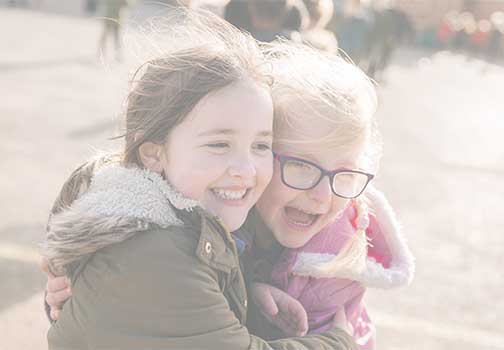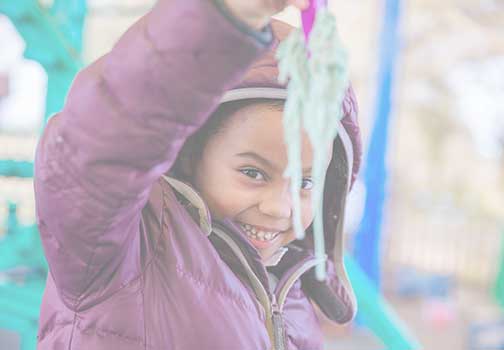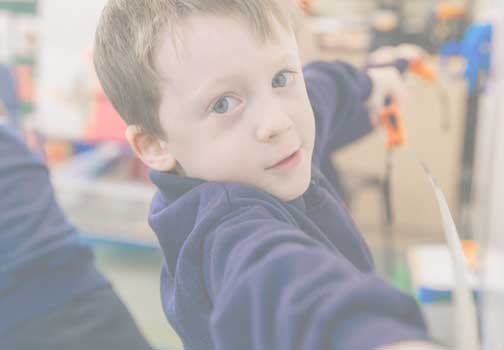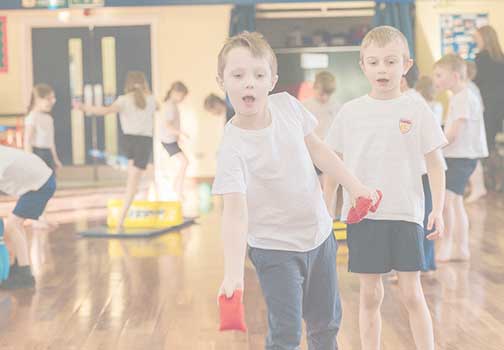Mental health and Wellbeing at Capel

At Capel Primary School, we are committed to supporting the emotional health and wellbeing of our pupils and staff. We know that everyone experiences life challenges that can make us vulnerable and at times, anyone may need additional emotional support. We take the view that positive mental health is everybody’s business and that we all have a role to play. Please scroll to the bottom of this page to read our school's mental health policy.
At our school we:
- help children to understand their emotions and feelings better
- help children feel comfortable sharing any concerns or worries
- help children socially to form and maintain relationships
- promote self-esteem and ensure children know that they count
- encourage children to be confident and ‘dare to be different’
- help children to develop emotional resilience and to manage setbacks
We offer different levels of support:
We follow a tiered system of support that includes:
- Universal whole school approaches – to meet the needs of all our pupils through our overall ethos and our wider curriculum. For instance, developing resilience for all.
- Targeted interventions - For those who may have short term needs and those who may have been made vulnerable by life experiences such as bereavement.
- Specialised, personalised approaches - For pupils who need more differentiated support and resources or specific targeted interventions such as wellbeing groups or personal mentors.
Our School Wellbeing lead is: Mrs Waters
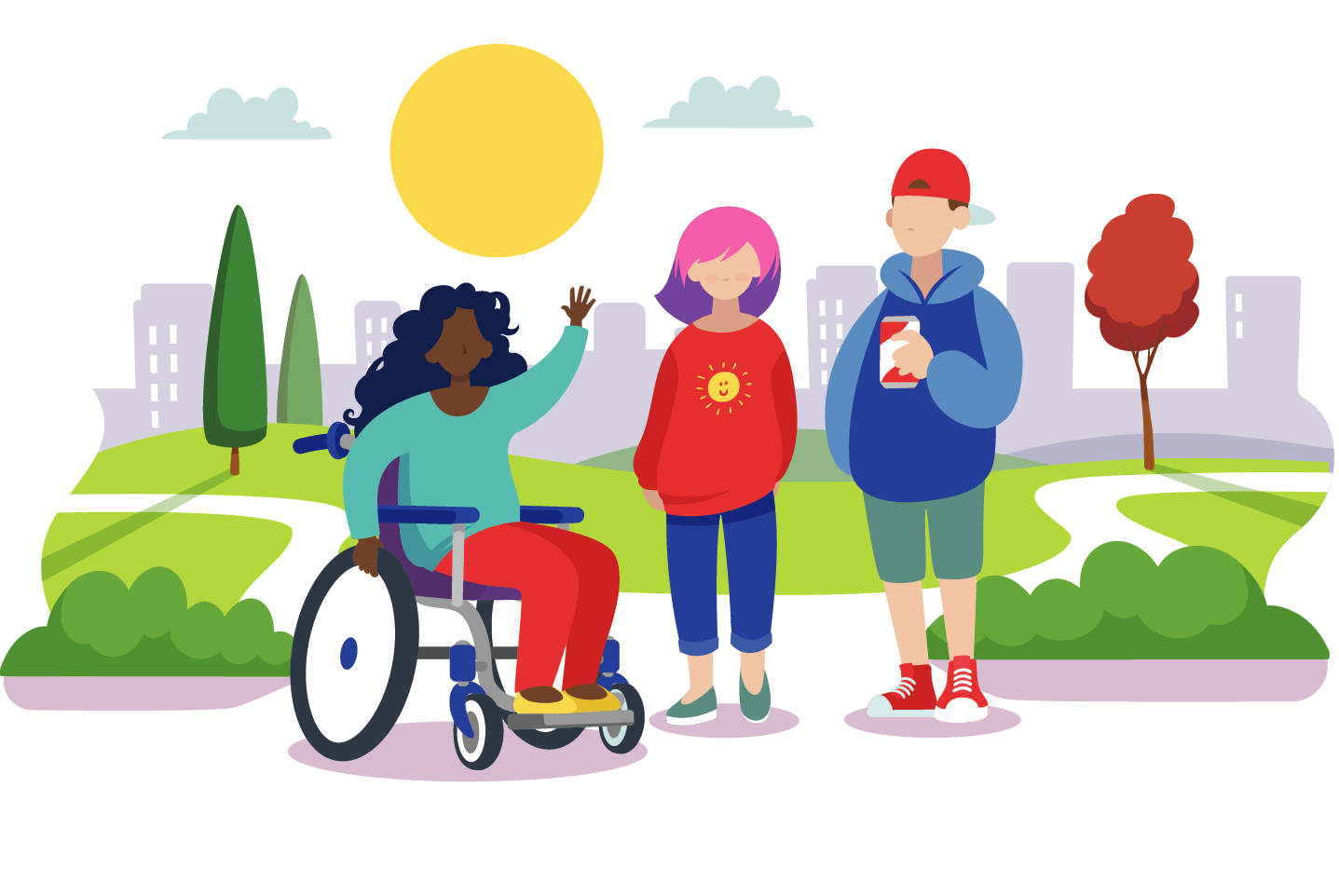
Please scroll down to the bottom of this page for parental tips and support.
What is mental health?
The charity 'Be Happy' have released some child friendly guides surrounding different areas of mental health and wellbeing. Please see below for the 'What is mental health' guide and further guides surrounding themes such as 'separation anxiety' and 'grief' below.
News!
Children's Mental Health Week 2024
The children enjoyed joining in with children's mental health week and the theme of 'my voice matters!'. We had a whole school assembly to kick start the week and Friday saw the return of 'Dress to Express' day. It was lovely to hear about all that the children had been getting up to in their classes.
Class R joined in with the national ‘children’s mental health week’ in collaboration with 'Place2be'. We shared lots of different picture book stories that helped us to think about our mental health, such as ‘The Worrysaurus’ and 'The huge bag of worries’. We have also thought about our zones of regulation, considering what puts us in the ‘green’ (happy) zone and how to get ourselves out of the ‘red’ (angry) zone and the ‘blue’ (sad) zone. In groups we then explored the story of the ugly duckling and talked together about all of our skills and achievements, whilst also thinking about what we want to do/be in the future.
Class 2, started off the week by looking at things we can do and people we can talk to when we are feeling sad. They reintroduced the fuzzy feelings/ kind words jar into the classroom. They also looked at the things that make us smile and how we can make others smile.
Class 3 talked about the positive impact of staying active and did some practical brain and movement breaks
In year 4 they discussed how talking about our feelings can help us regulate our emotions. The pupils used every afternoon to express themselves through art, gymnastics or drama. They spent one afternoon creating posters titled "My Voice Matters" along with a special box for their classroom where children can write a note for an adult to read, if they are unable to speak to someone.
Class 6 celebrated differences. They used resources from the charity 'changing faces' about people who are visible different and thought about how it might affect their mental health and then how we can accept everyone for who they are not judge them based on their looks or stereotypes. They created an 'all about me poster' to show how they are unique. They also had a 'kindness secret agent' for the week.
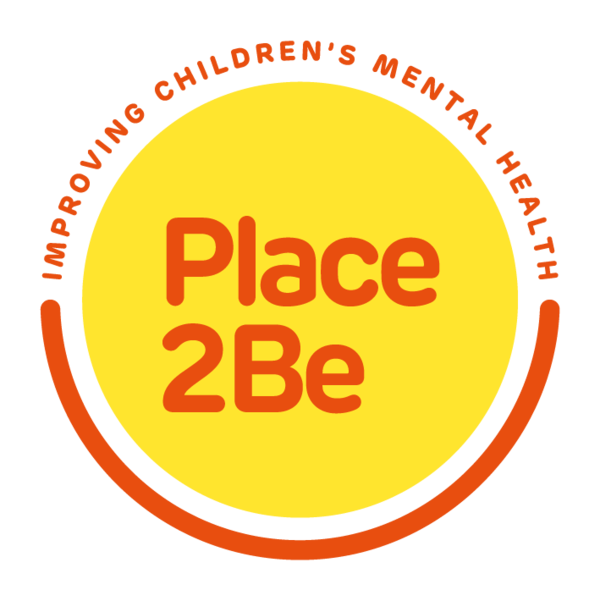
Anti-bullying days!
This year we have continued with our anti-bullying days throughout the year, our more recent one taking place on the 27th of January. We have been thinking about the impact words can have on people's feelings and the children have been working hard within their classes on some more class specific focuses. Check out our anti-bullying webpage for even more about what we have been getting up to!

On Friday the 6th of May the school celebrated its 3rd 'Anti-bullying' day of the year! Our theme for the day was 'see it, stop it, get help' and the day started with a whole school assembly within which class 5 and class R shared some of their thoughts around solutions to different scenarios and what it means to be a good friend. Afterwards, all of the classes had the opportunity to take part in an online theatre show from 'Open View Education'. The younger children watched 'Time to Unite', a show that focused on what bullying is, how it can happen and how to respond, The older children focused on the question of the difference between 'banter and bullying', exploring what 'banter' is and how banter/a shared joke can go too far.
Five Ways to Wellbeing
Research has found that taking action in the following 5 areas can improve positive mental health and wellbeing. As a school we look for ways to encourage these in our children’s day to day life at school.
- Connect with other people
Positive, happy, respectful relationships are important for your mental wellbeing. They can help you to build a sense of belonging, give you an opportunity to share positive experiences, opinions and goals and provide emotional support or allow you to support others with any issues, including mental health.
To connect more with people, you could:
- Try and make time to sit together an eat when everyone is at home
- Arrange a zoom quiz or gathering with close family and friends
- Dig out an old board game and have a games night without electronics
- Put aside some time each week to call someone you haven’t checked in with in a while
- Join a social media group that shares an interest of yours
- Write letters to family and friends that you aren’t able to see much of

- Be physically active
Being active is not only great for your physical health and fitness, evidence also shows that it can really improve your mental health and wellbeing by raising your self-esteem and helping you to set goals and feel motivated to achieve them. It also causes chemical changes in your brain which can help to positively change your mood.
To become more active, you could:
- Use free websites and apps that offer fitness and exercise guides to follow https://www.nhs.uk/live-well/exercise/couch-to-5k-week-by-week/
- Try GoNoodle with the children – it’s free to sign up and full of fun videos https://www.gonoodle.com/good-energy-at-home-kids-games-and-videos
- Download some walk and cycle paths and make the most of the wonderful coastline we have on our doorstep – maybe you could turn it into a nature walk or ‘eye-spy’ walk with the children, or download a free music streaming app and just take some time to yourself https://www.visitsouthport.com/things-to-do/walking-cycling
- Check out Sefton’s website https://www.activelifestyles-sefton.co.uk/or the NHS website https://www.nhs.uk/live-well/exercise/ for advice and guidance of what is available in our community and nationally
- Talk to friends or colleagues about starting a new fitness activity together, even virtually!

- Learn new skills
Learning new skills can improve your mental wellbeing by boosting your confidence and self-esteem, helping you to build a sense of purpose and achievement and possible helping you to connect with others with the same interests.
To begin learning a new skill, you could:
- Try learning to cook something new – there are lots of free recipes online and on social media channels, or you could ask friends and family members to share their favourite recipes.
- Start a new DIY project – Pintrest is a free app that is full of cheap and simple DIY projects for around the home and garden
- Download a free or affordable app to help you start to learn a new language
- Try a brand new hobby such as painting, sewing, starting a jigsaw, writing a short story or starting a blog, vlog, or your own Instagram account to share your interests with others
- Learn more about recycling and reducing the use of plastic and pass on your knowledge to friends and family (and school!)

- Give to others
Acts of giving and kindness towards others can improve your wellbeing by creating positive feelings and a sense of reward, giving you a feeling of purpose and self-worth and helping you connect with people around you. The acts of kindness can be big or small, all that matters is that you feel connected to the act and the person or people it helps.
To give to others you could:
- Allocate time in your week to check in with someone who lives alone or is struggling
- Offer your skills or advice to someone who needs help with a project
- Share what is working well in your home, with your job or with your children with others that may need support
- Check out your local volunteering service to offer your time to help others https://volunteeringsefton.org.uk/
- Raise money or awareness with your family and close friends for a specific charity or awareness event.
- Take notice of the present moment (mindfulness)
We can all find it hard to stop in our busy lives and think about what is important to us. But paying more attention to the present moment, which includes your thoughts, feelings and emotions, your own body and your surroundings (both immediate and world-wide) can improve your mental wellbeing. This awareness can be called ‘mindfulness’. Mindfulness can help you to stop and appreciate the smaller things in life and make you appreciate what you do have. There are many ways to practicing mindfulness and connecting more with yourself and the world around you, from intricate colouring in, to sitting quietly in your favourite space in the home or garden, to meditating at the start or end of your day. Your children can probably tell you about some of the mindful activities they have tried in school too!

For further information surrounding the '5 Ways to Wellbeing' please have a look at the document below!
| Name | |
|---|---|
| five-ways-to-wellbeing_poster.pdf | Download |
Useful links
Please look below to find some useful links for supporting the mental health and wellbeing of your family.
https://www.nhs.uk/oneyou/every-mind-matters/
A public health England and NHS site to help people take simple steps to look after their mental health, improve their mental wellbeing and support others.
https://www.mentallyhealthyschools.org.uk/
Quality-assured information, advice and resources to help primary schools understand and promote children’s mental health and wellbeing.
Parents' Toolkit (citymha.org.uk)
A toolkit for parents to support mental health difficulties in children and young people.
Additional supportive links
https://positivepsychology.com/mindfulness-exercises-techniques-activities/
https://www.nhs.uk/conditions/stress-anxiety-depression/mindfulness/
https://www.mindful.org/mindfulness-for-kids/
https://positivepsychology.com/mindfulness-for-children-kids-activities/
https://www.bbcgoodfood.com/howto/guide/10-mindfulness-exercises-kids
Specific Support...
Please find below some recommended links for who you can speak to, and what support is available, for particular Wellbeing and Mental Health concerns.
Parent and Carer's wellbeing:
- Mental Health Foundation - A range of content designed to give you more information about mental health and to help you to look after your mental health.
- Mental health - NHS (www.nhs.uk) Support for mental health
- Home - Mind - A charity that provides advice and support to empower anyone experiencing a mental health problem.
- Free, 24/7 mental health text support in the UK | Shout 85258 (giveusashout.org) Shout is a 24/7 UK crisis text service available for times when people feel they need immediate support.
Mindfulness:
- DreamyKid • Kids Meditation App • DreamyKid The #1 Kids Meditation App
- Home | Start Your Mindfulness Journey with Stop Breathe Think™ Kids mindfulness app for kids ages 5 - 10
- Mindful Gnats on the App Store (apple.com) - An app designed to teach young people simple mindfilness and relaxation skills
Loss of a loved one:
- Home - Cruse Bereavement Support - We offer support, advice and information to children, young people and adults when someone dies.
- Winston's Wish - giving hope to grieving children (winstonswish.org) - Winston’s Wish supports bereaved children, young people, their families, and the professionals who support them.
- Child Bereavement UK - Family support for when a child grieves or when a child dies
- Pet bereavement and help coping with pet loss | RSPCA advice - Advice and support on the loss of a pet
Sleep:
- How to fall asleep faster and sleep better - Every Mind Matters - NHS (www.nhs.uk) - How to fall asleep faster and sleep better
- Moshi Kids: Sleep & Meditation on the App Store (apple.com) - App to support children to get to sleep. Highly recommended by a parent.
- The Children's Sleep Charity
Children's wellbeing:
- Calm zone | Childline - An interactive website specifically designed to support children to find calm
- Childline | Childline - Online support and free phone helpline for children and young people
- Breathe, Think, Do with Sesame App Review (commonsensemedia.org) - Adorable monster de-stresses kids with Sesame Street style. Age 4+
- Seven techniques for helping kids keep calm - CBeebies - BBC - Seven techniques for helping kids keep calm
- Kids’ Skills app - is a step-by-step method developed by Dr. Ben Furman and his team to help children overcome problems and difficulties.
- SelfHelperNew (benfurman.com) - A multilingual collection of free programmes that can help solve and overcome difficulties in life
Relationships and parental separation:
- Relate | The relationship people - The UK's largest provider of relationship support
- Separating - Gingerbread - A charity supporting single parent families to live secure, happy and fulfilling lives
- Helping Your Child Cope with Your Divorce or Separation | NSPCC - Support for parents
- Children and Divorce - HelpGuide.org - Ways to help your kids cope with the upheaval of a breakup.
Supporting mental wellbeing:
- Anna Freud National Centre for Children and Families - A world-leading mental health charity for children and families
- YoungMinds | Mental Health Charity For Children And Young People | YoungMinds - The UK’s leading charity fighting for children and young people's mental health.
- Worries and anxieties - helping children to cope - for parents and carers | Royal College of Psychiatrists (rcpsych.ac.uk) - Reading material from the Royal College of Psychiatrists
- Guides created by National Online Safety that help support and promote good mental health:
| Name | |
|---|---|
| social-media-mental-health-online-safety-guide-for-trusted-adults - Copy (2).pdf | Download |
| supporting-childrens-mental-health-10-conversation-starters-for-parents - Copy (2).pdf | Download |
| what-parent-need-to-know-about-social-pressurses-linked-to-likes - Copy (2).pdf | Download |
| what-parents-need-to-know-about-social-media-and-mental-health.pdf | Download |
| what-parents-need-to-know-about-social-pressures-linked-to-appearance.pdf | Download |
| what-parents-need-to-know-about-social-pressures-linked-to-friends-and-followers.pdf | Download |
| what-parents-need-to-know-about-social-pressures-linked-to-influencers.pdf | Download |
Additional Specific support
Our early morning 'dolphin' group have worked hard as a team on creating an advice booklet on how to be positive and happy. Please see below!
| Name | |
|---|---|
| Dolphin group happiness booklet.pub | Download |
| Name | |
|---|---|
| Anger, helping your child with.pdf | Download |
| anxiety_online_booklet_primary_v120200423.pdf | Download |
| grief_and_loss_parent_booklet.pdf | Download |
| how-to-manage-what-your-children-watch-on-tv.pdf | Download |
| internet-matters-guide-digital-diet-balancing-screen-time.pdf | Download |
| school-problems-updated-march-2020.pdf | Download |
| sleep-diary.pdf | Download |
| what-parents-need-to-know-about-screen-addiction.pdf | Download |
| Name | |
|---|---|
| Anxiety guide for parents.pdf | Download |
| Charlie_Waller_Memorial_Trust_Wellbeing_Action_Plan (1).182697824.pdf | Download |
| Parent-Leaflet-re-Supporting-CYP-with-additional-needs-at-home-during-Covid-developed-by-Leics-EPS.205154865.pdf | Download |
| rebuild-and-recover-anxiety-tools-for-parents.pdf | Download |
| rebuild-and-recover-separation-anxiety-tips-and-guidance.pdf | Download |

For support with Coronavirus related aspects please have a look at: Coronavirus : Mentally Healthy Schools
Or check out the information shared below:
| Name | |
|---|---|
| coronavirus-anxiety-toolkit4.pdf | Download |
| coronavirus-dealing-with-effects-toolkit-5.pdf | Download |
| coronavirus-mental-health-and-wellbeing-toolkit-1.pdf | Download |
| rainbowfeelingspackisolation.pdf | Download |
| someone-i-know-has-coronavirus-with-thanks-to-elsa-support.pdf | Download |
| thinkuknow_primary_parents_helpsheetcoronavirus.pdf | Download |
Our school mental health and wellbeing policy
| Name | |
|---|---|
| Wellbeing policy.docx | Download |












